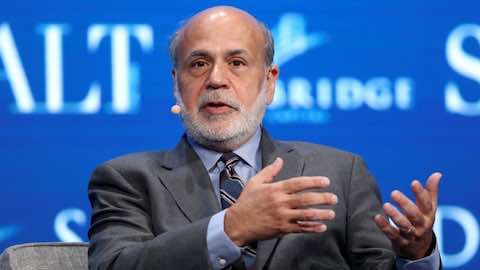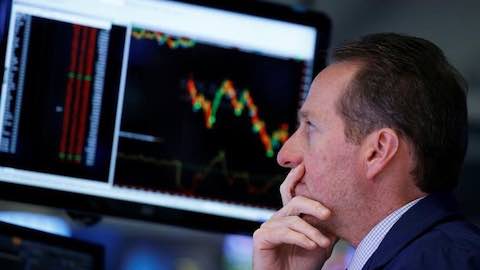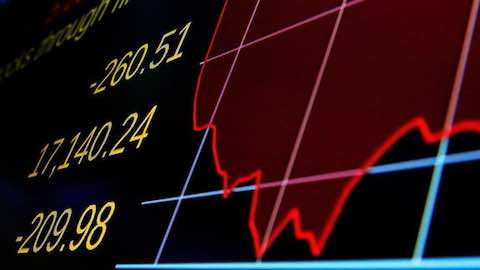- MENU
- HOME
- SEARCH
- WORLD
- MAIN
- AFRICA
- ASIA
- BALKANS
- EUROPE
- LATIN AMERICA
- MIDDLE EAST
- United Kingdom
- United States
- Argentina
- Australia
- Austria
- Benelux
- Brazil
- Canada
- China
- France
- Germany
- Greece
- Hungary
- India
- Indonesia
- Ireland
- Israel
- Italy
- Japan
- Korea
- Mexico
- New Zealand
- Pakistan
- Philippines
- Poland
- Russia
- South Africa
- Spain
- Taiwan
- Turkey
- USA
- BUSINESS
- WEALTH
- STOCKS
- TECH
- HEALTH
- LIFESTYLE
- ENTERTAINMENT
- SPORTS
- RSS
- iHaveNet.com: Stocks & Financial Markets
- Stock Buyback Boom Is On The Wane
- Companies Stockpiling Profit Overseas
- Crime Can Pay if It's Big Enough
- Pay Fair or Pay Up
- Gross National Happiness Catches On
- Big Data Winning Competitive Advantage
- Big Brother Cashing In on You
- Investor Bull Market & Worker Bear Market
- Why 13,000 Wasn't a Major Milestone
- What the Treasury Is Telling Investors
Agriculture | Airline | Auto | Beverage | Biotech | Book | Broadcast | Cable | Chemical | Clothing | Construction | Defense | Durable | Engineering | Electronics | Firearms | Food | Gaming | Healthcare | Hospitality | Leisure | Logistics | Metals | Mining | Movie | Music | Newspaper | Nondurable | Oil & Gas | Packaging | Pharmaceutic | Plastics | Real Estate | Retail | Shipping | Sports | Steelmaking | Textiles | Tobacco | Transportation | Travel | Utilities
3M (MMM) | AT&T (T) | AIG (AIG) | Alcoa (AA) | Altria (MO) | American Express (AXP) | Apple (AAPL) | Bank of America (BAC) | Boeing (BA) | Caterpillar (CAT) | Chevron (CVX) | Cisco (CSCO) | Citigroup (C) | Coca Cola (KO) | Dell (DELL) | DuPont (DD) | Eastman Kodak (EK) | ExxonMobil (XOM) | FedEx (FDX) | General Electric (GE) | General Motors (GM) | Google (GOOG) | Hewlett-Packard (HPQ) | Home Depot (HD) | Honeywell (HON) | IBM (IBM) | Intel (INTC) | Int'l Paper (IP) | JP Morgan Chase (JPM) | J & J (JNJ) | McDonalds (MCD) | Merck (MRK) | Microsoft (MSFT) | P & G (PG) | United Tech (UTX) | Wal-Mart (WMT) | Walt Disney (DIS)
- Amateur Spots Stocks Before Wall Street
- Factors That Drive Stock Prices
- How to Find Value Stocks
- Paulson's Plaintive Plea
- The Appeal of Emerging Market Bonds
- Latin America's Economic Bonanza
- Best Long Term Emerging Markets Funds
- Reasons to Invest in Africa
- Keeping Your Eyes on the Cloud
- Google Remains Powerful Brand
- Cisco Charging Hard
- Why You Should Give ETFs a Try
- 3 Sites for Picking the Right ETFs
- Most Successful Companies Since 1944
- What Investors Can Learn From the VIX
- Wall Street's Speed Freaks
- Ominous Signs for Investors
- High-priced Stocks Worth the Money?
- Where to Find the Dividends Now
- The Case for & Against European Stocks
- ETFs Not Just For Gamblers
- Unusual Stock Funds Intriguing
- When Asset Size Matters in Investing
- The Appeal of Go-Anywhere Funds
- What You Can Learn From Fund Flows
- How to Play Emerging Markets With US Stocks
- The Trump Currency Bump
- Are ETFs to Blame for Volatility's Rise
- Investing in 'Global Gorillas'
- Why Big U.S. Stocks Look Like a Good Bet
- Consumer Staples Positioned Well
- Cash Rich Companies to Watch
- Growth Versus Value Investing
- Why You Should Buy Stocks That Pay Dividends
- Tax Tips for Mutual Fund Investors
- Elephant-Sized Mutual Funds
- Target Date Funds Have Performed Better
- Research Vital to Finding Right Fund
-
Betting on commodities by buying futures contracts directly can be very risky. So having a core position in a fund that invests broadly in commodity-related businesses with some side positions tied specifically to agriculture and energy is probably the smartest move for the retail investor
-
In recent weeks, metals of all sorts -- precious and industrial -- have taken a beating in a major selloff in the commodities market. Experts cite a number of reasons, including speculation, increased margin requirements, and concerns that the economic recovery may not be as strong as previously thought. But experts say the losses in copper are the most troubling
-
Do you know exactly what you're paying for when you fill up? Not all of your hard-earned dollars end up in the coffers of big gasoline tycoons or Middle Eastern despots. The list of players is long, so we talked to the experts to find out where your money goes when you cash out at the pump
-
New economic projections from the World Bank and the United Nations show that Latin America countries will keep growing at moderate rates this year, except for the booming economies of Paraguay, Panama and Peru
-
The market economy model invented and practiced by the West is no longer working. China is the dominant country in the eastern camp in such discussions. So what has caused such anxiety in the West?
-
China's GDP growth has fallen significantly. Here's why it matters in the U.S.
-
Exchange-traded funds that track China had been high-flyers over the past few years. This year has been a different story, featuring a double-digit percentage drop that has now run into a mild late-year bounce
-
Taking advantage of greatly reduced stock prices is a tricky business. One strategy is to find an investment area so certain to grow that it will be around long after market traumas subside. Green investing, which offers the added potential of innovative companies getting snapped up by bigger firms, could be one of those areas
-
While the U.S. economy is saddled with sluggish growth, a near double-digit unemployment rate, and a housing market plagued by foreclosures and falling prices, the stock market has been booming since hitting bottom in March 2009
-
Corporate profits are up, and profits are up largely because companies have figured out how to do more with less
-
The global cloud-computing market is expected to reach $241 billion in 2020, up from $41 billion in 2010, according to Forrester Research. That long-term potential is reflected in the high-flying stocks of companies actively involved in the concept
-
With bond yields so low, dividend-paying stocks can be a good alternative for income-seeking investors
-
Whatever view one takes, ending the Fed is a goal much more easily stated than accomplished. But if Fed bashers got their wish, here are a few snapshots of how the country might change
-
As bonds struggle, investors hunt for income. But not all ETFs are created equal
-
China is facing a product-quality scandal once again, another in a seemingly endless string
-
Although emerging markets have taken a dive lately, the long-term outlook for these fast-growing countries remains favorable for investors, especially as growth in much of the developed world stalls. Investors should consider folding high-growth global exposure into a balanced portfolio
-
Jim O'Neill, chairman of Goldman Sachs Asset Management, singled out the four BRIC countries in 2001, but now he's decided to drop the term BRIC. That's because he's adding Mexico, South Korea, Turkey, and Indonesia to the previous BRIC countries, and referring to the group as 'growth markets.' Should this new distinction matter to the individual investor?
-
By relocating some parts of international supply chains, globalization has been affecting the price of goods, job patterns, and wages almost everywhere. It is changing the structure of individual economies in ways that affect different groups within those countries differently. In the advanced economies, it is redistributing employment opportunities and incomes
-
'Will 2011 be the dawn of the Latin American decade?' asked the headline of a Standard & Poor's webcast. When I saw it, I wondered whether the firm was making a big blunder, or I was missing the biggest economic story in the region. The headline was only the latest of several optimistic reports about Latin America's economies. All of a sudden, Latin America is becoming an emerging economic star
-
Staying relevant is never easy for a company or its long-suffering investors. Firms and their products can go in and out of style -- and out of profitability, as well. Selecting those that will prosper year after year through good and bad times while rewarding their shareholders is an accomplishment
-
There will be investigations and already there are lawsuits over Facebook's overhyped IPO, but no investigation is necessary into the reason for the outrage over the stock's rapid fall. It's called human nature
-
Large-cap growth funds have held up better than most other types of stock funds in 2011
-
These funds give portfolio managers considerable leeway in choosing among different asset classes
-
Who are leveraged exchange-traded funds meant for? The answer depends on your level of sophistication and investing time horizon
-
If exchange-traded funds sound like exotic investments to you, here's what you need to know
-
To help find funds that have a history of strong performance in rough times, we compiled a list of funds, spread among a range of asset classes, with impressive 10-year track records
-
According to some analysts, gold may hold the bulk of this run into 2012; at least three major investment banks hiked their price forecasts, though some do expect gold to pull back from what they see as current highly speculative levels. Here's a look at some of the leading gold ETFs
-
The bright side of the topsy-turvy situation, if there is one, is that it has added to the luster of smooth-performing investments. While such careful choices won't be leaders in hot markets, they provide a desirable safety net in downturns
© iHaveNet.com




